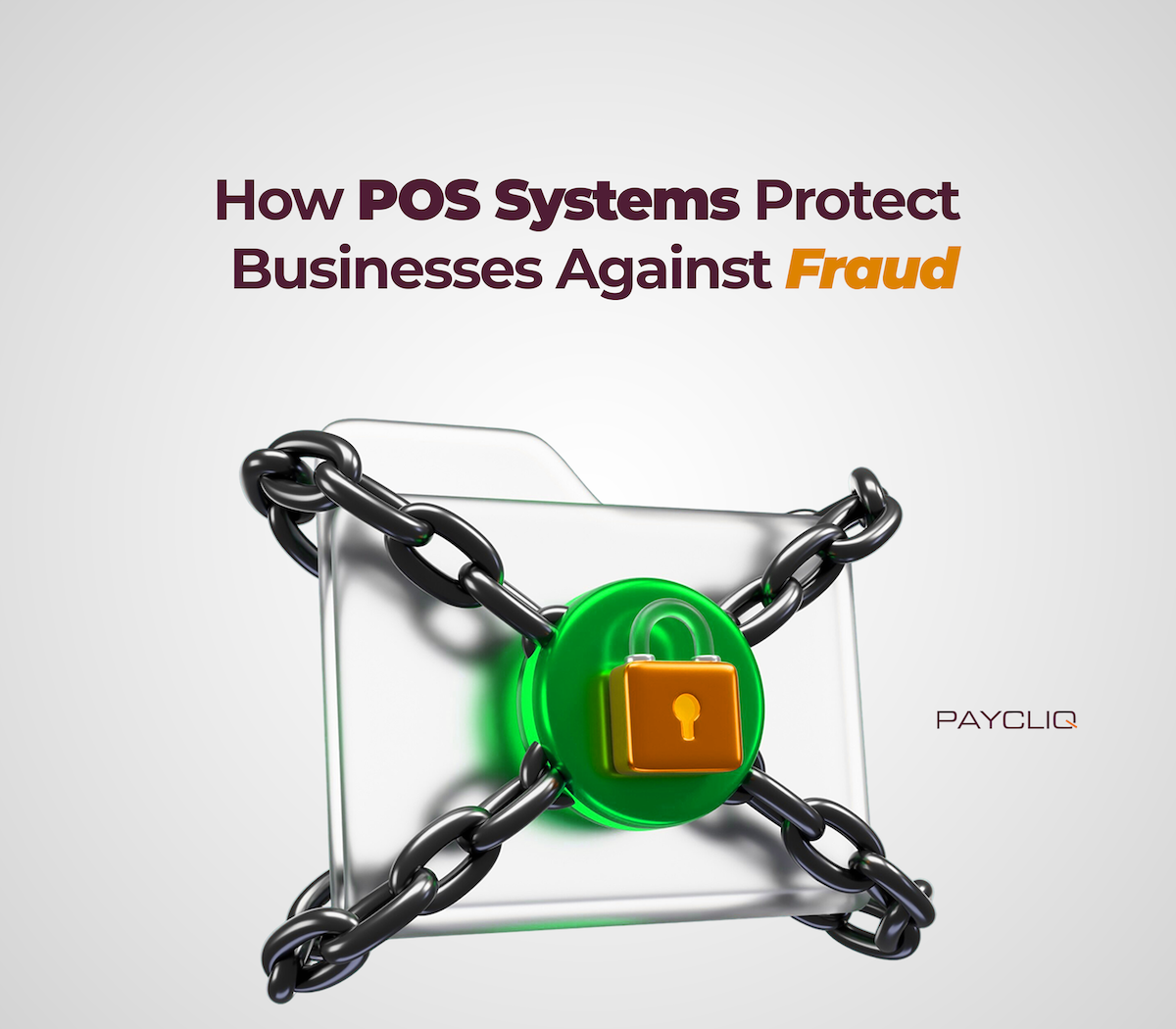Nigerian businesses have moved towards the digital economy, where cashless transactions are the norm. However, as businesses adopt digital payments, the challenge of payment fraud also arises. Fraudulent activities in the payment process are bad for both merchants and customers as they can lead to financial losses, reputational damage, and customer distrust.
On the brighter side, point-of-sale (POS) systems have evolved far beyond their original role of processing payments. Today, modern POS systems, such as PayCliq, offer advanced features for fraud prevention. These systems are designed to protect both the business and its customers from fraud by using several layers of security.
In this post, we’ll explore the key ways POS systems help Nigerian businesses stay ahead of fraudsters and build trust with their customers.
-
End-to-End Encryption (E2EE)
When customers make a payment, they share sensitive information, such as their card details. End-to-end encryption (E2EE) ensures that this data is securely transmitted from the customer’s device to the merchant’s POS terminal and back. E2EE process converts sensitive information into an unreadable code. So even if fraudsters intercept the data, it remains useless to them. Only the merchant’s bank or payment processor can decrypt the information. That way, customers’ data remains safe and protected from potential breaches.
-
Two-Factor Authentication (2FA)
Two-factor authentication (2FA) adds an extra layer of security to POS systems. Instead of relying on only a password or PIN, 2FA requires users to authenticate their identity through a second method, such as a one-time password (OTP) sent to their mobile phone.
So, even if a fraudster gains access to a staff member’s login details, they won’t be able to complete transactions without the second layer of authentication. The 2FA reduces the risk of unauthorised access to the POS system, especially in busy environments where multiple employees are involved.
-
Role-Based User Permissions
Internal fraud is just as bad as external fraud. Hence, there is a need for role-based user permissions to ensure that only authorised staff members can access sensitive parts of the POS system. The feature limits the scope of access based on the user’s role in the organisation.
For example, a cashier may only be able to process payments, while a manager may have access to transaction reports and account settings. You can minimise the risk of fraud committed by employees, as they cannot access areas of the system that are beyond their responsibilities.
-
Tokenisation of Card Data
Tokenisation is another feature that enhances security on modern POS systems. Instead of storing actual credit or debit card details, the POS system generates a token, which is a bunch of random characters that represent the card data.
The token is only useful within the specific transaction. Meaning that even if hackers manage to intercept the transaction data, they won’t be able to make fraudulent transactions. Tokenisation protects cardholder information and makes it difficult for fraudsters to access or misuse sensitive data.
-
Secure Network and PCI Compliance
PCI compliance is a set of strict guidelines that ensure all systems storing, processing, or transmitting cardholder data meet high standards of security. So to provide the highest security standard, POS systems operate within secure networks protected by firewalls and other security protocols. It means that the data being transmitted between the merchant’s POS system and the payment processor is shielded from potential threats.
Additionally, modern POS systems like PayCliq follow Payment Card Industry Data Security Standards (PCI DSS). Businesses can assure their customers that their transactions are safely handled.
-
Real-Time Transaction Monitoring
Modern POS systems come with real-time transaction monitoring features. The features allow businesses to track transactions as they occur. These systems can instantly flag suspicious activities, such as huge transactions or multiple failed payment attempts.
Real-time monitoring enables businesses to detect fraud before it escalates into a larger issue. It allows for immediate action to block or reverse fraudulent transactions. This feature can save businesses from significant losses and protect customer trust.
-
Digital Receipts and Audit Trails
Modern POS systems issue digital receipts to customers. The receipts are stored in the system for easy retrieval. These digital records both serve as proof of transaction and provide an audit trail that helps businesses track every action within the system.
In case of a dispute or suspicion of fraud, businesses can easily access these digital receipts and audit trails. They can review the transaction history and identify any irregularities. This level of transparency helps build trust with customers and creates a secure business environment.
-
Regular Software Updates and Security Patches
Your POS systems require regular software updates and security patches to stay safe from the evolving tactics of fraudsters. These updates ensure that your POS software is equipped with the latest security features and vulnerabilities are patched before fraudsters exploit them.
Our Take
Fraud prevention is crucial for Nigerian business owners seeking to stay competitive and establish customer trust. Modern POS systems, such as PayCliq, are designed with top security in mind. So, they have standard security features that protect both merchants and customers from the growing threat of payment fraud.
Business owners should invest in a modern POS system that protects them against fraud and continues to thrive in the cashless economy.



What do you think?
It is nice to know your opinion. Leave a comment.